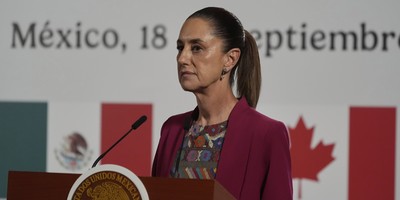When Pope Leo XIV addressed the College of Cardinals two days after he was elected to the papacy, he explained why he took the name that he did.
"Sensing myself called to continue in this same path, I chose to take the name Leo XIV," he said. "There are different reasons for this, but mainly because Pope Leo XIII in his historic Encyclical Rerum Novarum addressed the social question in the context of the first great industrial revolution. In our own day, the Church offers to everyone the treasury of her social teaching in response to another industrial revolution and to developments in the field of artificial intelligence that pose new challenges for the defense of human dignity, justice and labor."
Pope Leo XIII was born Joachim Vincent Pecci in 1810 in Carpineto, Italy, the second youngest of seven children.
"The inhabitants of Carpineto were generally poor, but they supported their poverty courageously," wrote the Rev. James J. McGovern in a biography of Pope Leo XIII published in 1903, the year the pope died.
The family of this future pope was not poor. His father was Count Louis Pecci; his mother, Countess Anna Pecci. "Leo XIII," says the biography, "belonged to the eleventh generation of the Peccis of Carpineto."
"The Countess Anna brought to her husband a notable amount of property, which the family holds to this day," said the biography.
She also homeschooled her children.
"The first lessons taught Vincent were in the home school, presided over by his mother," McGovern wrote. "She was a finished scholar, capable in more ways than one to take charge of the instruction of her children."
Pope Leo XIII's brother, Joseph, recalled that their father would occasionally assist in the homeschooling. "Being an accomplished Latin scholar," said Joseph, "he took upon himself the task of teaching us the rudiments of the Latin language so thoroughly that when we entered the college at Viterbo, we were enabled to make most rapid progress in our studies.
"Sometimes," Joseph said, "the good Bishop of Anagni would visit our home, remaining several days. It was his delight to spend hours in our classroom, closing his visit with religious and moral counsels. These simple talks took deep root in our hearts, proving to be of incalculable advantage to us years afterward."
Recommended
Their mother also taught them charity -- by example.
"It was a treat to us when our mother, animated always with an inexhaustible fund of charity, permitted us to accompany her on her visits to the poor and sick in the neighborhood, carrying hampers of provisions and medicine," said Joseph Pecci, according to the biography.
When the future Pope Leo XIII was 8, his mother stopped homeschooling him and Joseph and enrolled them in a Jesuit school. "When the Countess Pecci saw that she could no longer conduct the education of her sons, who she felt were divinely called to an ecclesiastical career, she took them to Viterbo, a city not far from Rome, and placed them in the College of the Jesuits, where they entered upon a course of study embracing Latin, Italian and Greek."
Joachim Vincent Pecci went on to study at the Roman College ("sometimes known as the Gregorian University") and "also availed himself of the lectures delivered by world-renowned professors in the University of Sapienza."
"At the completion of his term of study he distinguished himself by securing the highest honors of his class," said the biography.
His brother Joseph became a Jesuit. He was ordained a secular priest and "celebrated his first mass, in the presence of his beloved father and family" on Jan. 1, 1838.
Forty years later, in February 1878, he was elected pope -- and took the name Leo XIII.
In May 1891, he issued Rerum Novarum, an encyclical letter "on capital and labor" that defended the rights of laborers and private property -- and condemned socialism.
"In any case we clearly see, and on this there is general agreement, that some opportune remedy must be found
"It is surely undeniable," said this encyclical, "that, when a man engages in remunerative labor, the impelling reason and motive of his work is to obtain property and thereafter to hold it as his very own."
"Socialists, therefore, by endeavoring to transfer the possessions of individuals to the community at large, strike at the interests of every wage-earner, since they would deprive him of the liberty of disposing of his wages, and thereby of all hope and possibility of increasing his resources and of bettering his condition in life.
"What is of far greater moment, however," wrote Pope Leo XIII, "is the fact that the remedy they propose is manifestly against justice. For, every man has by nature the right to possess property as his own."
"Hence, it is clear," wrote this pope, "that the main tenet of socialism, community of goods, must be utterly rejected, since it only injures those whom it would seem meant to benefit, is directly contrary to the natural rights of mankind, and would introduce confusion and disorder into the commonweal.
"The first and most fundamental principle, therefore, if one would undertake to alleviate the condition of the masses," wrote Pope Leo XIII, "must be the inviolability of private property."
























Join the conversation as a VIP Member